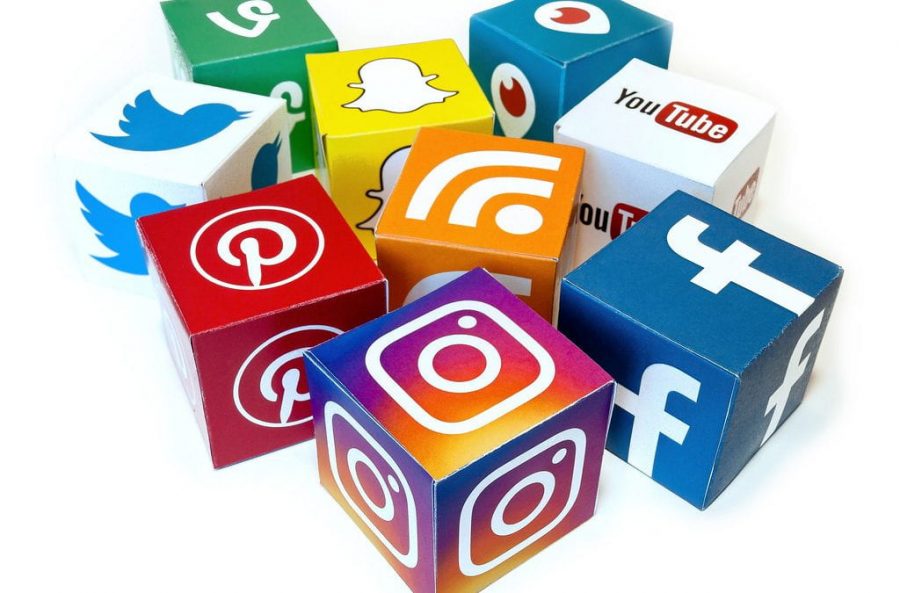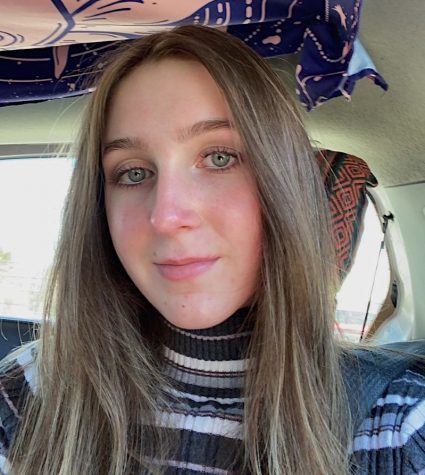There are plenty of positives to be taken from social media
November 5, 2020
After finishing your math homework, you decide to take a “quick” break by checking your social media. A minute of opening your Snapchats turns into an hour of scrolling through TikTok, and then another half hour checking your Twitter feed. Sounds like a typical day, right?
Most of us have dealt with and experienced the negative repercussions of social media such as the addiction, the comparison, or the pressure of appearance and how you display yourself on platforms. With this in mind, it can be difficult to find the positive side of the apps we know and love.
Using social media in a positive way by not wasting all of your energy on it and worrying about what other people are doing could potentially boost your confidence and mental health. While it was never intended to damage these aspects of our lives, those have become unintended consequences. The good news is that we all have control over what we permit ourselves to see when we open our feed.
Lynda Schultis, who comes from a generation that didn’t grow up with social media, definitely has an easier time finding the positives of these apps than high school students do. She admits to “liking the control over what she sees” and “what people see in her life.”
It’s undoubtedly important to set boundaries on your favorite apps, as you never know who might see it and if that’s even their business. Most high school students with private accounts allow just about anyone from school to follow them, even if they personally don’t know them.
Why do we do this? Is it because we want more followers which equals the appearance of “popularity”? Does having more followers automatically mean more likes? While some people might answer ‘yes’ to both of these questions, Instagram is a poor measure of these insignificant assumptions.
In the long run, everyone is going to be friends with who they want to be friends with and how many followers you had on social media in high school won’t matter. What matters the most are the real life memories you’re making with your closest friends, not the amount of likes the group photo of you guys got.
Paying attention to the accounts you follow is important, especially if you follow ones that were made for the sole purpose of spreading positivity.
Jackson Gray, or @dudewithacne on Instagram, has been part of the acne community since May, around the time when quarantine started. He began his page when he found out about the acne community and decided he wanted to be a part of it. Around 2 months later, in July, he really started to notice growth in his page.
“I’m barely on my personal account anymore and I only follow closer people on my personal Instagram, but I’m constantly on this Instagram [account] instead, seeing people spread positivity and it has given me a different way to express myself. I’m just getting more comfortable and my mental health is improving because of it,” Gray said.
Accounts like Gray’s, without a doubt, help people feel less alone. When you notice how many others are struggling with the same problems as you, you realize your insecurities are common and completely valid.
“If you look for positive sayings everyday or people with situations or health issues similar to yours, you realize you’re not the only one,” Schultis said.
Spreading positivity on social media actually doesn’t stretch too far from our own school district. In the summer of 2018, an anonymous Instagram user under the name @shalerkids decided to start an account. After Shaler drama or ‘tea’ accounts were swirling around the app, the anonymous user decided it was time for a change.
Shaler students could send this user a photo of their friend with a kind message, expecting it to be posted in a few days. @shalerkids admits it was a bit overwhelming at first, receiving 20-30 messages by the second day. Nevertheless, the account has over 100 posts filled with positivity and kindness.
That being said, when observing the positivity in our favorite apps, one of the most important parts, and what they were originally created for, is the ease of communication.
“It makes communication easier for friends. You can send them funny memes,” junior Josie Fath said.
Junior Melanie Celender makes a similar point with how you can “meet some of your friends on social media” and “keep in contact with people.”
The advantage of easily being able to contact friends and family definitely helps keep strong relationships, as you’re also able to see what they’ve been up to. This comes in handy with long-distance relationships or people you haven’t seen in awhile.
Social media has also been a great outlet for people to use their voices and spread valuable information. With the recent surge of the Black Lives Matter Movement, many across all platforms have been sharing petitions, ways you can help, information surrounding the election, and why it’s important to get involved.
This easy access to news and information is extremely beneficial and something we shouldn’t take for granted. It’s so simple nowadays to open Twitter and see what’s trending, a luxury that many baby boomers and gen x didn’t have growing up.
“I used to have to look through encyclopedias to find information at a library. I’d get into a car, drive to the library, research for my homework. It’s [social media] definitely convenient- too convenient probably,” Schultis said.
Celender, on the other hand, actually wishes she grew up in the generation that Schultis did, but acknowledges the importance of social media in our lives now.
“Part of me wishes I grew up in like the 80s when there was no social media. But I don’t regret it in today’s age because it’s nice to keep up with things,” she said.
Social media should be a fun way to take a break from our stressful lives, not be the stress in our lives. By sharing your genuine self with the people you want, worrying about how many ‘likes’ your posts receive shouldn’t be a problem. Gray has definitely experienced this after starting his acne account.
“I thought it would improve my confidence and (help me) become more comfortable with myself, but I didn’t expect it as much as it actually has,” he said.
Confidence and a stable mental health are some of the most important aspects of our lives, and the apps we use everyday should be helping them, not taking away from them.
“At the end of the day, you have to look at the mirror and be happy with who you are,” Schultis said.



